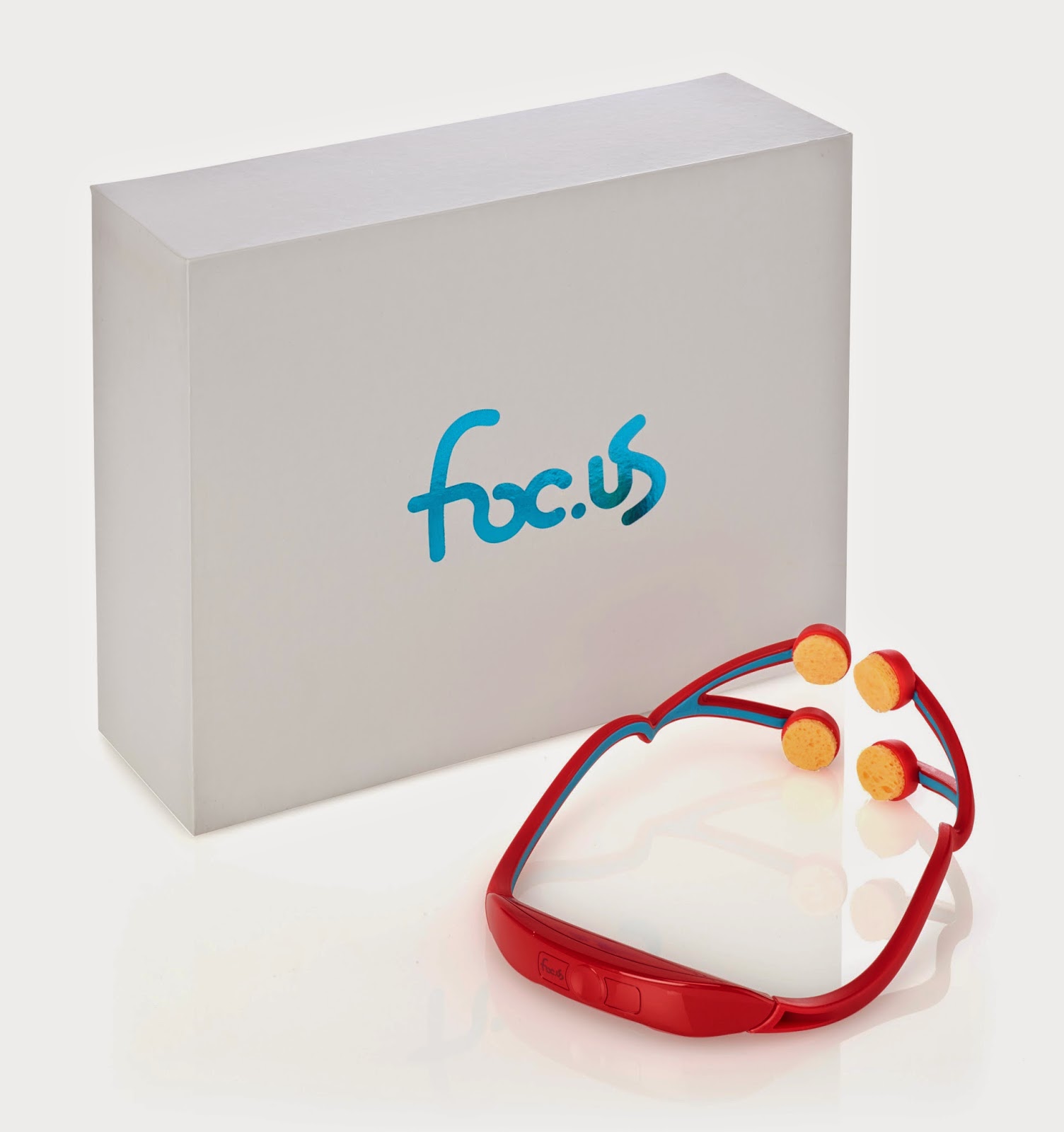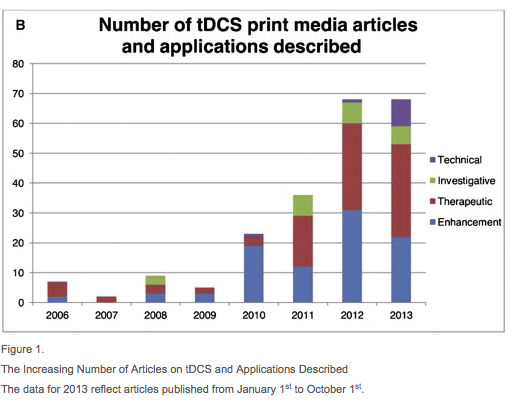| Online: | |
| Visits: | |
| Stories: |

| Story Views | |
| Now: | |
| Last Hour: | |
| Last 24 Hours: | |
| Total: | |
It’s shocking – How the press are hyping the benefits of electrical brain stimulation
 |
| A commercially available tDCs device |
There is a “rising tide” of hype regarding the potential benefits of weak electrical stimulation of the human brain. That’s according to a trio of Canadian neuroscientists writing in the journal Neuron.
Veljko Dubljević and his colleagues performed literature searches on mentions of transcranial direct current stimulation (tDCS) in the academic and mainstream print media. tDCS involves the application of weak electrical current to the scalp, with the aim of altering neuronal function. There have been numerous recent reports of this practice leading to forms of cognitive enhancement – however, it’s possible there are detrimental drawbacks and the long-term consequences are unknown.
Dubljević and his team found that research and media coverage of tDCS has increased dramatically since 2006. There were over 250 academic papers published on the technique in 2013 (up to October of that year), compared with fewer than 25 in 2006. Similarly, they identified nearly 70 mainstream media articles in 2013 (up to October), compared with fewer than 10 in 2006.
They also noted the way the media has focused disproportionately and uncritically on the cognitive enhancement potential of tDCS. Whereas the majority (45 per cent) of academic studies are on therapeutic uses of the technique, with just 13 per cent on enhancement, the media focused as much on enhancement (42 per cent) as on therapeutic uses (42 per cent). Typical headlines include “A tiny zap to improve memory” (The Philadelphia Inquirer) and “Jump start your brain” (Boston Magazine). While the scholarly press often included caveats and warnings about side-effects, these were rarely mentioned in the popular press.
What’s more, the media coverage included “misleading statements” and “sensationalised” the capabilities of tDCS. Reportage on electrical brain stimulation was also often accompanied by the perpetuation of brain myths, such as the idea that we only use 10 per cent of our brain power.
Dubljević and his colleagues call on professional societies, government bodies, researchers and scientist writers to do more to inform the public about the safety concerns regarding tDCS, to explain better the mechanisms of action (many of which are not fully understood), and to present a more realistic picture of the likely benefits. This is especially urgent, they argue, given the lack of regulation of tDCS devices, and their increasingly widespread availability.
“Given the rapid evolution of tDCS in the public domain and in academia, tackling its social, ethical, and policy implications requires a multifaceted response,” they said.
_________________________________ ![]()
Dubljević, V., Saigle, V., & Racine, E. (2014). The Rising Tide of tDCS in the Media and Academic Literature Neuron, 82 (4), 731-736 DOI: 10.1016/j.neuron.2014.05.003
–further reading–
Read this before zapping your brain
The age of the superhuman
Post written by Christian Jarrett (@psych_writer) for the BPS Research Digest.
Source: http://bps-research-digest.blogspot.com/2014/06/its-shocking-how-press-are-hyping.html




